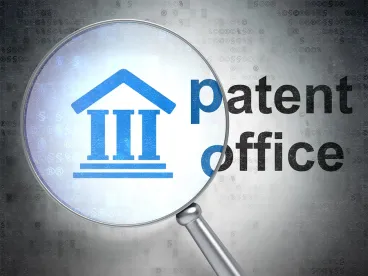In a 2-1 split decision on Wednesday, July 22, 2020, the Federal Circuit confirmed that the Patent Trial and Appeal Board (“PTAB“) had the authority to reject substitute claims under 35 U.S.C. §§ 101 and 112, statutory grounds not available to the PTAB for evaluating patentability of granted patent claims in inter partes review (“IPR“). (Uniloc 2017 LLC, v. Hulu, LLC et al., Case No. 2019-1686, slip op. at 3 (Fed. Cir. July 22, 2020).)
The appeal stemmed from the PTAB’s denial of Uniloc’s motion for rehearing in the IPR of Uniloc’s U.S. Patent No. 8,566,960 (the “’960 Patent”), IPR2017-00948. Id. at 2. Appellees Hulu and Netflix challenged the patentability of the ’960 Patent and the PTAB issued its Final Written Decision, finding claims 1-8, 18-22, and 25 unpatentable. Id. at 7. During the IPR, Uniloc filed a contingent Motion to Amend. The PTAB denied the Motion to Amend finding Hulu had demonstrated that the proposed substitute claims were directed to unpatentable subject matter under 35 U.S.C. § 101. Id. at 8. Uniloc subsequently requested rehearing of the decision, alleging the PTAB is not permitted to consider a challenge under 35 U.S.C. § 101 during an IPR proceeding. Id. at 9. The request was denied. Id.
Mootness
Hulu argued that Uniloc’s motion to amend was moot because the motion was dependent on the finality of the PTAB’s decision regarding the patentability of the original claims. Id. at 11. Hulu argued that the motion would only be reached if the PTAB decided the originals claims were unpatentable and thus would occur after the final decision (e.g., after the proceeding as a whole had been completed) and ultimately be moot. Id. Hulu further argued that the related district court case had decided that the original claims were invalid. Id.
The majority, however, disagreed with Hulu, stating a case may only be dismissed for mootness if it is impossible “to grant any effectual relief.” Id. at 10 (quoting Mission Product Holdings, Inc. v. Tempnology, LLC, 139 S. Ct. 1652, 1660 (2019)). Uniloc would be eligible for relief if its position regarding the PTAB’s misuse of 35 U.S.C. § 101 was correct, necessitating a remand to the PTAB for other analysis, potentially providing an avenue for claims to survive. The majority found the case was not moot. Id. at 10-11. Notably, the panel further found that Hulu had waived its mootness argument by failing to present such an argument before the PTAB. Id. at 11.
The dissent, on the other hand, stated that the case was in fact moot. Id. at 26. Unlike the majority, the dissent held that Uniloc could not be granted any relief because relief would only be possible if Uniloc could substitute its original claims for new claims. Id. at 27. However, Uniloc would be precluded from making a substitution of claims as there would have been no “existing claim” for the proposed claims to take the place of due to the loss of the underlying patent rights at the PTAB, district court, and affirmance of the district court’s determination. Id. at 28. In other words, if the original claims of the ’960 Patent were determined to be invalid before Uniloc could make the substitution, there would be no valid claims to substitute out of the patent.
Statutory Bases of Unpatentability
The panel also reviewed whether the PTAB is permitted to review proposed substitute claims under 35 U.S.C. § 101 or § 112. The majority found that the PTAB was permitted to make such determinations, citing various sections of the IPR Statute. Id. at 15. Specifically, 35 U.S.C. § 318 “requires the PTAB ‘issue a final written decision with respect to the patentability of… any new claim added under [§] 316(d)[,]’” which includes a § 101 analysis for amended claims. Id. The majority agreed with the USPTO that “if a patent owner seeking amendments in an IPR were not bound by § 101 and § 112, then in virtually any case, it would overcome prior art and obtain new claims simply by going outside the boundaries of patent eligibility and the invention described in the specification.” Id. at 19 (quoting USPTO Intervenor Brief at 25).
Uniloc argued that the majority’s decision clashes with their previous ruling in Aqua Products Inc. v. Matal, which stated that new propositions of unpatentability are not allowed to be inserted into an IPR and, since a substitute claim must be more narrow than the original claim, conducting a § 101 analysis would not only be pointless, but would also introduce a new proposition of unpatentability outside the scope contemplated under the AIA. Id. at 20-21 (citing 872 F.3d 1290, 1306 (Fed. Cir. 2017)). The majority ultimately disagreed with Uniloc’s argument, stating that Aqua Products “addresses only whether a petitioner challenging the proposed substitute claims bears § 316(e)’s burden of proof… [and] is silent as to whether a petition may raise a patent-ineligibility challenge to a proposed substitute claim.” Id.
In the dissent, Judge O’Malley argued the majority ruling allows the PTAB to “engage in a full-blown examination.” Id., O’Malley dissenting at 10. The dissent begins by interpreting the term “patentability” as used in 35 U.S.C. § 318 to be limited to a §§ 102 and 103 analysis of patents and printed publications. Id. at 12. In limiting the term to only apply to §§ 102 and 103 (and excluding § 101), the dissent urges the term be applied universally to both challenged claims and new claims, pointing to the language of 35 U.S.C. § 318. Under this meaning, the dissent argues that a § 101 analysis is not required or even allowed because “[t]he structure of an IPR does not allow the patent owner to inject a wholly new proposition of unpatentability into the IPR by proposing an amended claim.” Aqua Products, 872 F.3d at 1306. “If the challenged patent claims were invalid under § 101 prior to amendment, amending them to be narrower is not going to create a ‘new’ question of patentability” and any § 101 analysis is unnecessary and beyond the scope of the PTAB’s review. Uniloc v. Hulu, O’Malley dissenting at 15.
The split decision may be ripe for en banc review, especially in view of the juxtaposition of this decision and the Aqua Products holding.






 />i
/>i

